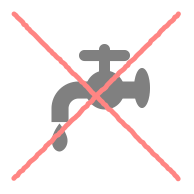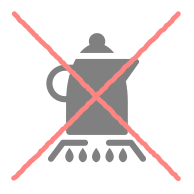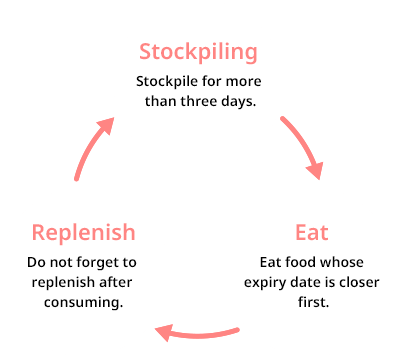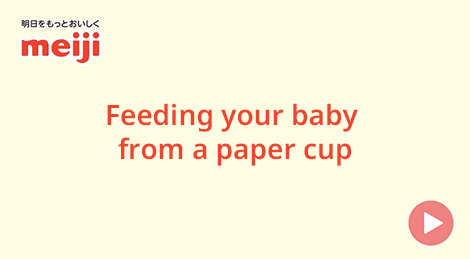
We want to do everything we can to support babies and their families in the event of a disaster, which could happen at any time.
Below are our efforts for stockpiling for disasters.
When disaster strikes, hygiene tends to deteriorate during evacuation. Breast milk is undoubtedly safer for babies, whose immune systems are still underdeveloped, but tension, fatigue, and highly stressful conditions often lead to poor lactation. It is
important to create an environment where mothers can relax at such times. Setting up a nursing room in the shelter may help mothers feed their babies in a quieter and more relaxing environment, and this may promote lactation.
Even in times of disaster, it is ideal to feed babies as usual, either with breast milk or formula. In reality, however, infant formula tends to become in short supply when needed.
Meiji Hohoemi RakuRaku Milk has a long shelf life. You can use it very hygienically, even living in a shelter. Some consumers have commented that it is a suitable substitute for breast milk in times of disaster.
Meiji is committed to creating a secure society where ample supplies of emergency powdered milk are stockpiled.
You will find everything you need to know to protect your baby in this booklet. We hope it will be of use.






Water, gas, and electricity may become unavailable.
The place where baby milk is stored may be destroyed.
Young children are susceptible to changes in their environment. Even in ordinary times, communities should stockpile supplies commonly needed by families with infants to provide a minimum living environment for them in times of disaster.
Rotate and replenish to maintain your emergency food supplies. This allows you to have access to fresh food in times of emergency.

By keeping your emergency food supplies at a constant level through consuming and replenishing regularly, you can keep your stockpiles fresh. In an emergency, you may be able to eat something close to your ordinary meals.



When you cannot use a nursing bottle in times of disaster, you can use a paper cup to feed your baby.

Precautions for paper-cup feeding

